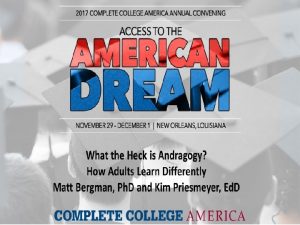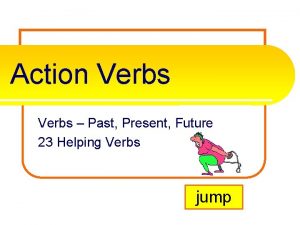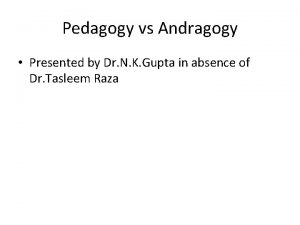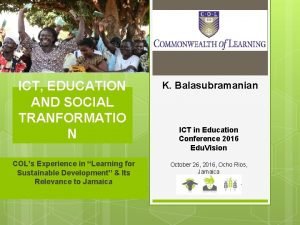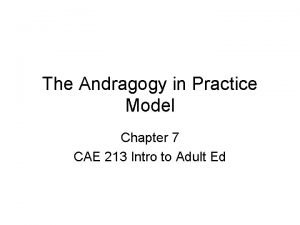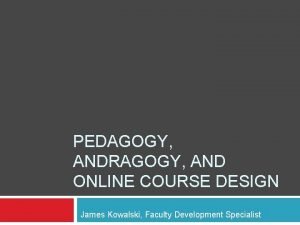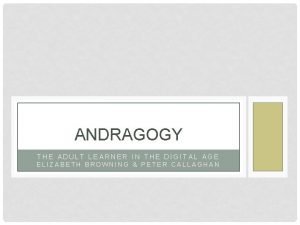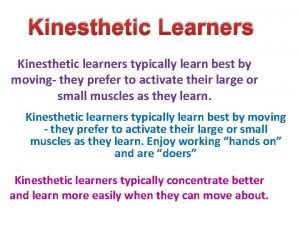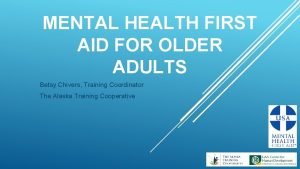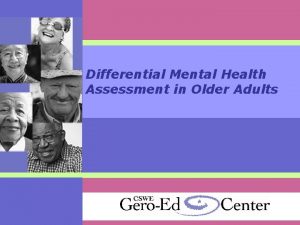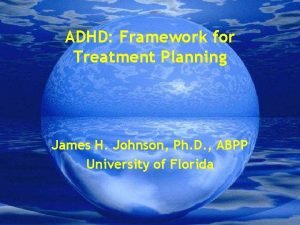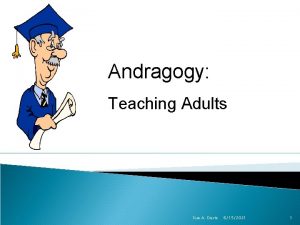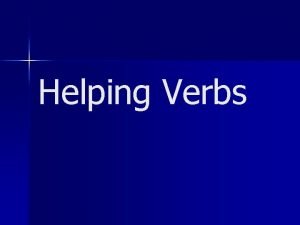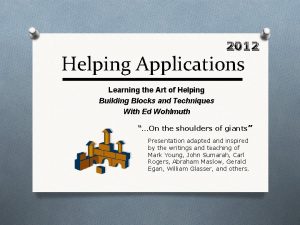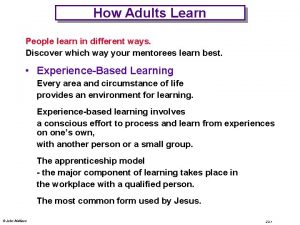Andragogy Art and science of helping adults learn













- Slides: 13


Andragogy • Art and science of helping adults learn • Introduced in 1968 by Malcolm Knowles • Separates the field of adult education from the education of children (pedagogy)

Pedagogy vs. Andragogy • Teacher-oriented • Self-oriented • Dependency • Self-dependent • Subject-centered • Problem-centered • Externally motivated • Internally motivated

Who are today’s adult learners? • • • Over 24 and beyond Midcareer executive to unskilled worker Unemployed: layoffs and outsourcing Women returning to college Veterans seeking new career path Nontraditional students with plenty of life, work, and family experiences

Why do adults return to school? • • • Develop skills to stay competitive Improve employability Increase earning power Prepare for a career change Fulfill personal goals Inspire children and set example

Why do adult learners need to complete degrees? • U. S. ranks #12 for degree attainment for 25 -34 year-olds (Dept. of Ed. , 2014) • Unemployment for 25 -34 year-olds with a degree was only 4% contrasted with 13% for those lacking a degree (NCES, 2013) • Earnings for degreed 25 -32 year-olds averaged $45, 500 compared with only $28, 000 for those without a degree (Pew, 2014)

Workforce Realities • 27 million working-age Americans have some college credits, but no degree (Lumina, 2016) • 60% of U. S. jobs will require college degree by 2018 (Lumina, 2011) • STEM jobs projected to grow by 9 million between 2012 and 2022 (BLS, 2014)

Learning Needs of Adult Learners • Need to understand importance of what they are learning • Need to know how their learning relates to their own best interest • Need to use their own experiences to learn

Adult Learner Barriers • Situational (family responsibilities, finances, work conflicts) • Institutional (faculty availability, course offerings, support systems) • Dispositional (fear of failure, remediation needs, perseverance) (Osam, Bergman, & Cumberland, 2016)

Adult Learner Success and Retention • Accelerated transition programs that focus on learning style and study skills • Corequisite courses to provide remediation while earning college-level credit • Support systems designed for needs of adult students (childcare, transportation assistance, stress management)

Adult Learners in the Classroom • • • Group activities Case studies Project-based learning Research assignments Peer review Portfolio development

Supporting Adult Learners • Student services focused on needs of adult learners (advising, financial aid, etc…) • Faculty trained to integrate relevant remediation into college-level courses • Teaching and learning communities dedicated to adults (Miller, 2016)

Group Discussion: Integrating Andragogy into Adult Learner Programs • How do you integrate andragogy in your adult learner programs? • What techniques and methods can create an adult-friendly environment?
 It is the art & science of helping adolescent learn
It is the art & science of helping adolescent learn The 23 helping verbs
The 23 helping verbs Pedagogy vs andragogy examples
Pedagogy vs andragogy examples Conclusion of ict in education
Conclusion of ict in education Andragogy in practice model
Andragogy in practice model Pedagogy meaning
Pedagogy meaning Digital andragogy
Digital andragogy Kinesthetic learners learn best by
Kinesthetic learners learn best by My favorite subjects
My favorite subjects It is an art and science of erecting structures
It is an art and science of erecting structures Mental health and older adults
Mental health and older adults Mental health and older adults
Mental health and older adults Sample treatment plan for adhd child
Sample treatment plan for adhd child Type 1 diabetes in adults diagnosis and management
Type 1 diabetes in adults diagnosis and management
